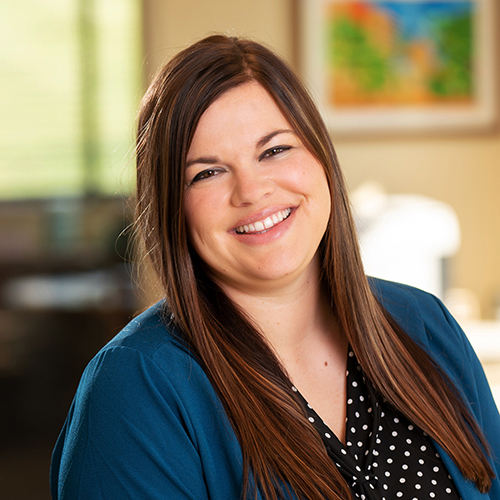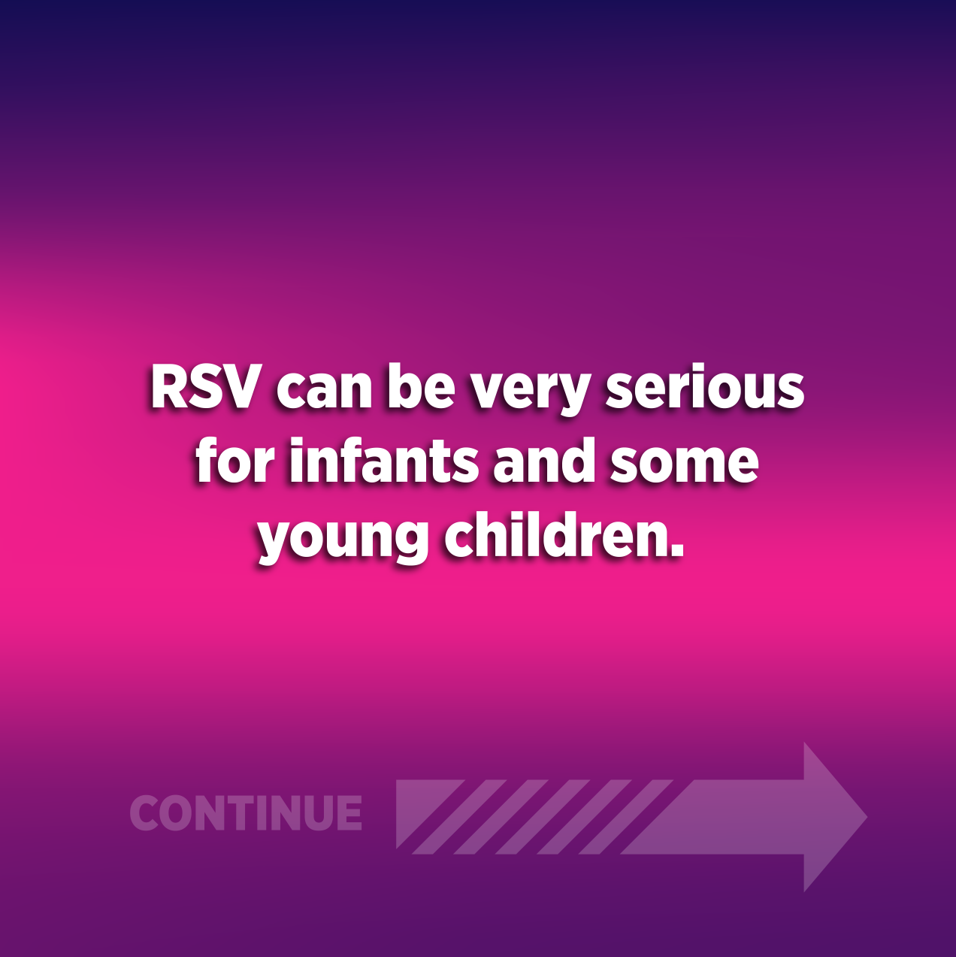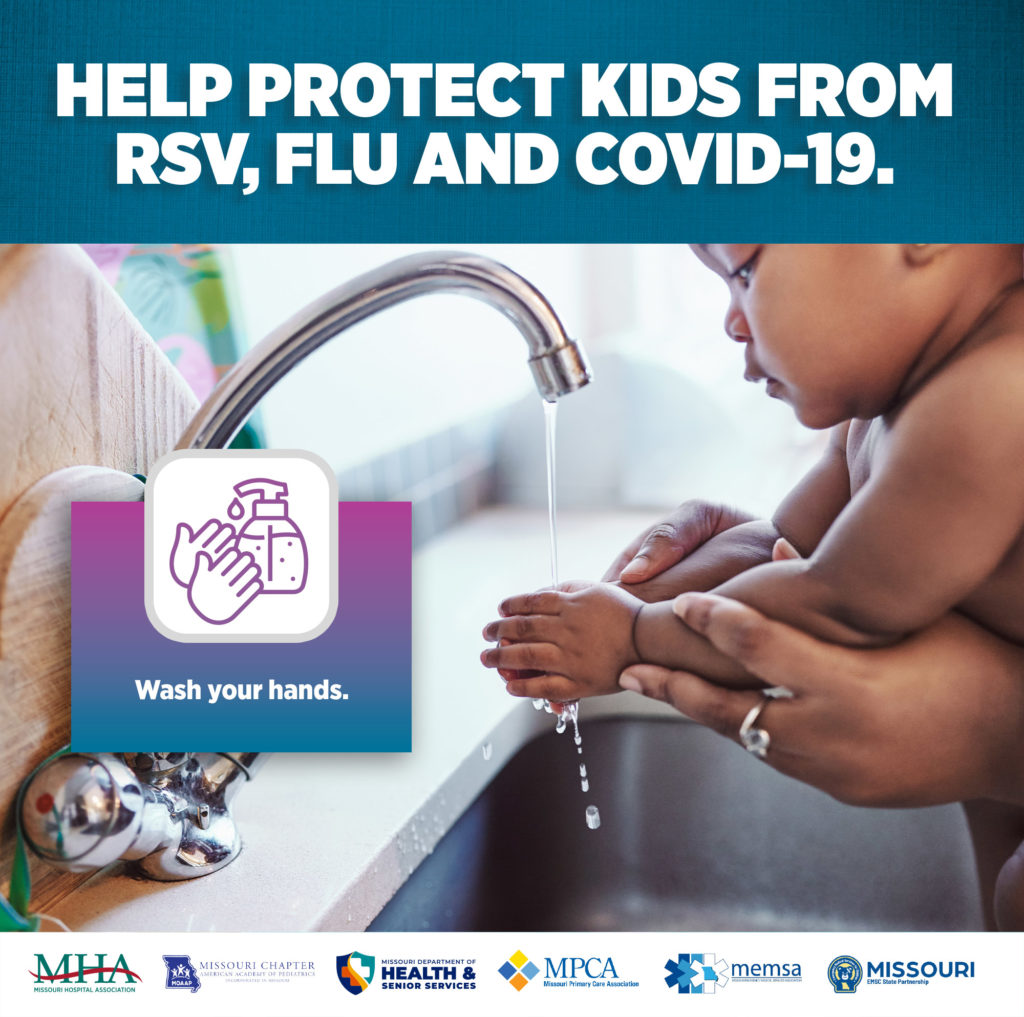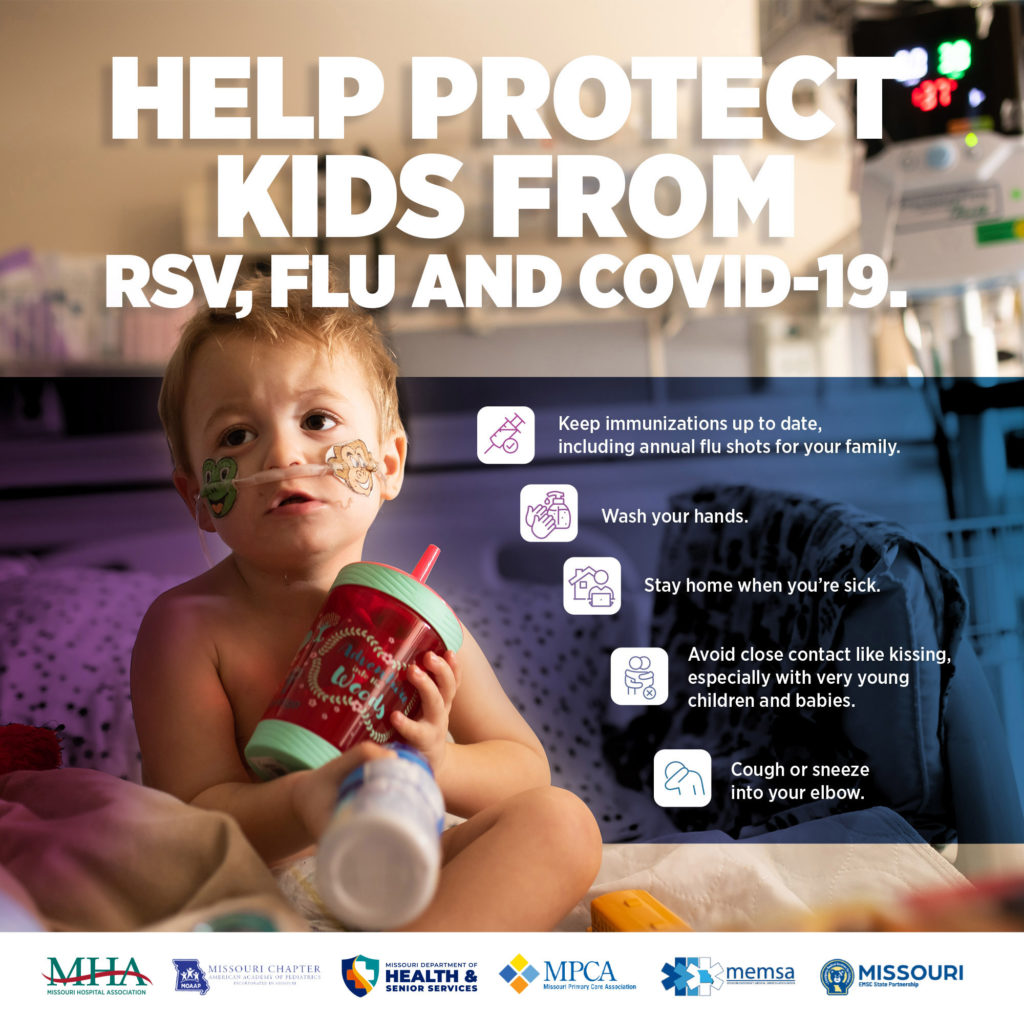Expert

Renee Wilde
Actions
Type
Topic
- Disease Management
Tags
MHA produced social media graphics and sample social messaging to help hospitals and organizations communicate about the current RSV surge.
This toolkit was produced by the following organizations: MHA, Missouri Chapter of the American Academy of Pediatrics, Missouri Department of Health and Senior Services, Missouri Primary Care Association, Missouri Emergency Medical Services, and Missouri Emergency Medical Services for Children State Partnership.

Fact Series
This series is educational and provides facts about RSV, including symptoms and statistics.

Prevention Series
This series offers tips for preventing RSV, flu and COVID-19 in children.

Poster
Hospitals and organizations can use this poster to educate on RSV, flu and COVID-19 prevention in children.
Sample Social Messaging
Missouri is seeing a significant and early rise of cases in RSV – especially in children. The state is also experiencing a seasonally early rise in flu cases.
We all have role to play in slowing the spread of viruses, and protecting kids from RSV, flu and COVID-19.
How can you help prevent the spread?
- Keep immunizations up to date, including flu shots for your family.
- Wash your hands.
- Stay home when you’re sick.
- Avoid close contact like kissing, especially with very young children and babies.
- Cough or sneeze into your elbow.
If you suspect you or your child has a virus, you can get tested for RSV, influenza and COVID-19. The best place to get tested is at your pediatrician’s office, primary care office or at your local urgent care.
________________________________________________________________________________________________
Help protect kids from RSV, flu and COVID-19.
Missouri is experiencing a significant and early rise of cases in RSV, a virus that can be very serious for infants and some young children, potentially requiring hospitalization.
How can you help prevent the spread?
- Keep immunizations up to date, including flu shots for your family.
- Wash your hands.
- Stay home when you’re sick.
- Avoid close contact like kissing, especially with very young children and babies.
- Cough or sneeze into your elbow.
________________________________________________________________________________________________
#DYK one to two out of every 100 children younger than 6 months of age with RSV infection may need to be hospitalized?
Help protect kids from RSV – and other highly contagious viruses like flu and COVID-19.
- Keep immunizations up to date, including flu shots for your family.
- Wash your hands.
- Stay home when you’re sick.
- Avoid close contact like kissing, especially with very young children and babies.
- Cough or sneeze into your elbow.
________________________________________________________________________________________________
Missouri is seeing a significant and early rise of RSV cases statewide. Respiratory syncytial virus (RSV) is a common virus that affects the lungs and breathing passages. Most healthy children and adults who get RSV will have a mild case with regular cold symptoms.
However, premature infants, babies younger than 6 months old, people above age 65 and people who have a compromised immune system, chronic lung disease or congenital heart condition can get a more severe case of RSV, which may require hospital care.
Help prevent the spread of RSV – and other highly contagious viruses like flu and COVID-19.
- Keep immunizations up to date, including flu shots for your family.
- Wash your hands.
- Stay home when you’re sick.
- Avoid close contact like kissing, especially with very young children and babies.
- Cough or sneeze into your elbow.
________________________________________________________________________________________________
What is RSV, who is at-risk for severe illness and how can you prevent the spread?
Missouri is seeing a significant and early rise in RSV cases – especially in children. The rise in RSV cases – combined with a seasonally early flu season – is hitting hospitals hard.
Do what you can to prevent the spread of viruses.
- Keep immunizations up to date, including flu shots for your family.
- Wash your hands.
- Stay home when you’re sick.
- Avoid close contact like kissing, especially with very young children and babies.
- Cough or sneeze into your elbow.
________________________________________________________________________________________________
RSV is highly contagious and its symptoms can include runny nose, cough and a decrease in appetite and activity. RSV can also cause a fever – but not always.
If you suspect you or your child has RSV, the best place to get tested is at your pediatrician’s office, primary care office or local urgent care.
An RSV illness can often be managed at home, but you should immediately call your call health care provider if you or your child is having difficulty breathing, not drinking enough fluids, or experiencing worsening symptoms.
How can you help prevent the spread?
- Keep immunizations up to date, including flu shots for your family.
- Wash your hands.
- Stay home when you’re sick.
- Avoid close contact like kissing, especially with very young children and babies.
- Cough or sneeze into your elbow.









